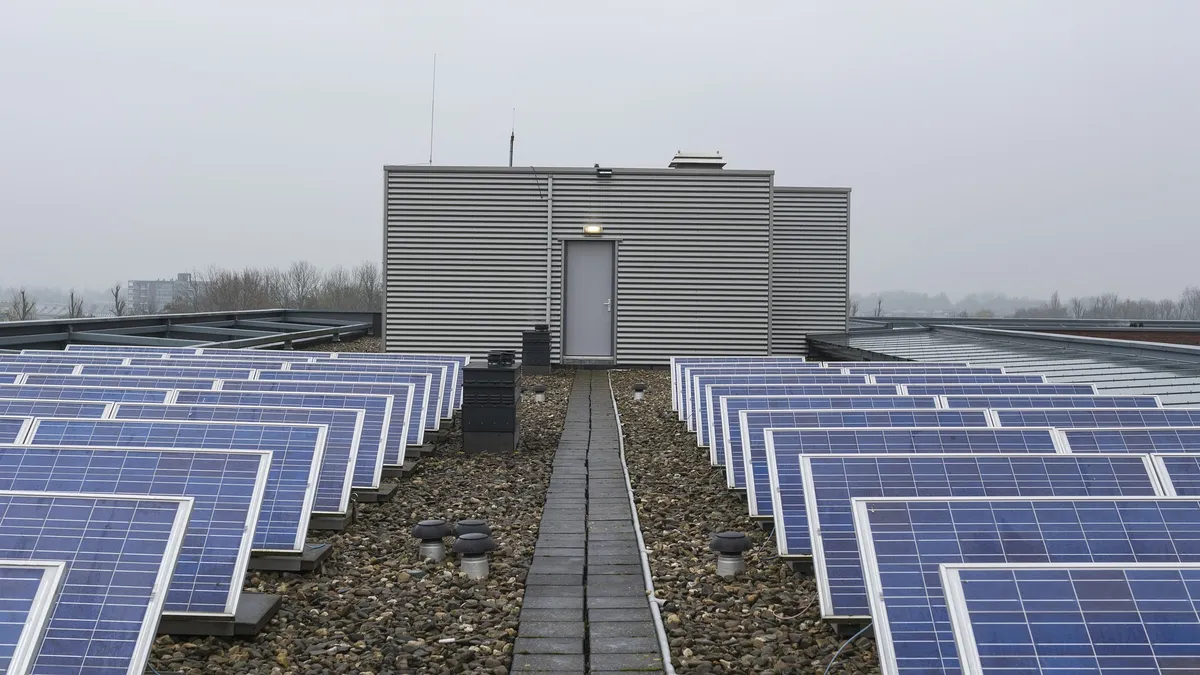The U.S. Department of Energy on Wednesday announced $53.6 million in grants to 13 states and the Virgin Islands for expansion of low-income weatherization efforts and improved access to renewable energy. The Sustainable Energy Resources for Consumers grants cover projects not traditionally included in DOE’s Weatherization Assistance Program, and are funded by the Infrastructure Investment and Jobs Act.
The largest award, about $25 million, goes to New York for four projects to expand renewable energy sources, efficiency and health and safety at public housing throughout the state.
“We are infusing new technology and flexibility into the Department’s long-standing Weatherization Assistance Program, investing in more low-income households and creating more clean energy jobs,” Secretary of Energy Jennifer Granholm said in a statement.
Along with standard weatherization measures, such as installing insulation and sealing cracks and gaps in building envelopes, SERC grantees “will conduct expanded retrofits of low-income residential buildings and utilize a wide range of technologies, such as solar photovoltaic panels, cold climate air source heat pumps, and triple-pane windows,” DOE said.
- New York will use the SERC funds to improve 40 scattered-site group homes in Nassau and Suffolk counties, and for weatherization, triple pane windows and solar generation for over 1,200 units in a nine-building public housing complex in Brooklyn;
- Ohio will receive $4.3 million to bolster clean energy sources for low-income Appalachian residents and integrate SERC funds into existing weatherization and healthy homes programs;
- The Virgin Islands will use $1.5 million to install solar panels, battery storage and virtual power plant management systems across the territory. The project aims to improve energy reliability and reduce costs in a region where hurricanes can cause major grid interruptions;
- New Mexico will receive $2 million to install renewable energy systems and other energy technologies to help weatherize 85 units, including energy-efficient heating and cooling systems, solar panels, and electrical upgrades; and,
- Georgia will use $7.5 million to evaluate home conditions and recommend heating, cooling and ventilation upgrades to enhance climate control for at least 350 recipients, including through the installation of ducted and ductless air source heat pumps, energy recovery ventilation, dehumidifiers, and relevant energy monitoring devices.
A full list of the SERC funding grantees can be found here.
“As the nation wrestles with extreme weather intensified by climate change, the Biden-Harris Administration is ensuring that Americans in every pocket of the country, regardless of income, have access to the clean energy tools that make their homes more resilient and efficient,” Granholm said.
Amid rising electricity prices, DOE has focused on investments that align with the Biden administration’s Justice40 Initiative, which aims to ensure 40% of the overall benefits of certain federal climate and clean energy investments go to disadvantaged communities that have been marginalized by underinvestment and overburdened by pollution.
The year-over-year inflation rate for U.S. electricity prices reached 5.9% in May, up from 3.8% in January, according to Bank of America Institute.
DOE has awarded two prior rounds of SERC funding totaling $20.8 million. And the Inflation Reduction Act provided about $8.8 billion for states, territories and tribes to improve efficiency in homes and lower energy bills.














